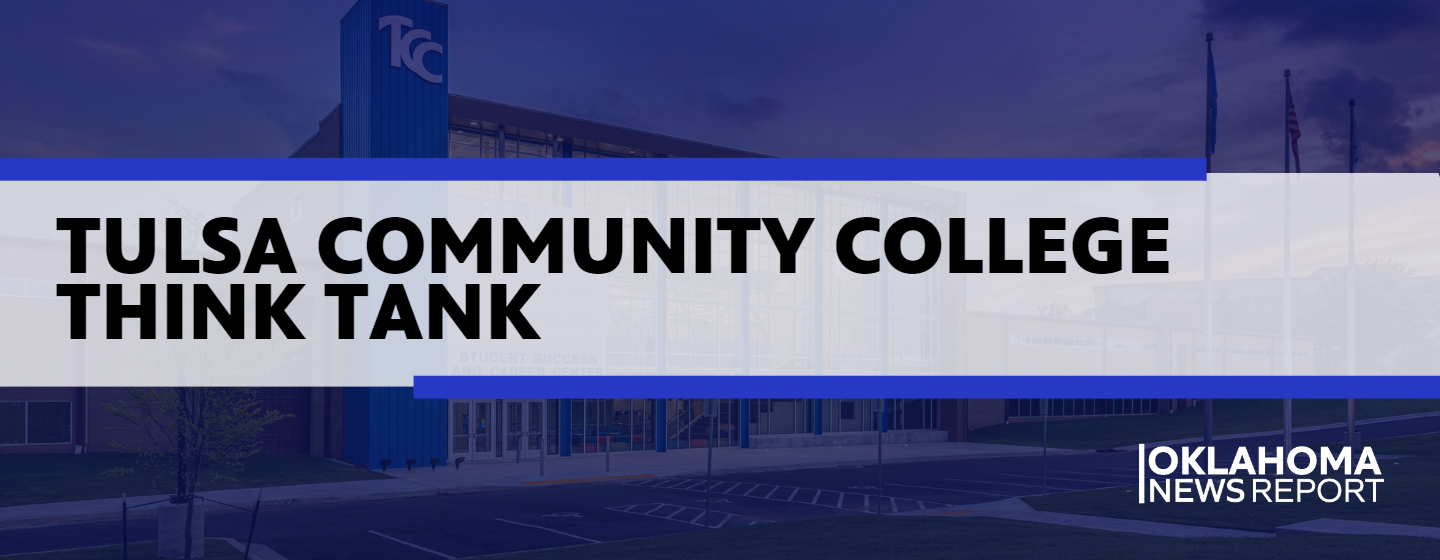Tulsa Community College is one of just 10 colleges nationwide that have been invited to take part in a program created by a prestigious think tank located in Washington D.C. For the past several years, schools like Tulsa Community College have focused on improving graduation rates.
They're up 25%, but these learning institutions also now realize graduating is only part of it. Tulsa Community College offers a slew of two-year programs that include a manufacturing, engineering, technology, nursing, physical therapy assistant, and veterinary techs, and they serve more than 20,000 students across four campuses in Tulsa.
Every student you see in this second-year nursing class, according to Tulsa Community College, will have a nursing job when they graduate in May.
Abigail Bailey is in the class. “It took a while. I probably had two or three years where I was kind of an undeclared major, so it definitely took me a second,” Bailey says when she started college four years ago, she wanted to teach science, but she says teacher pay and the overall climate towards teachers in the Sooner state turned her off the program.
“I think this new program they're doing is gonna help people kind of direct their feet to get to the point that they're wanting to get to,” Bailey says.
The new program is called Unlocking Opportunity, the Post-Graduation Success and Equity Network. The effort is led by the national nonprofit Aspen Institute and Columbia University in New York City.
Tulsa Community College is one of 10 community colleges nationwide that were picked to participate. TCC President Leigh Goodson doesn't take that lightly.
“And keep in mind, there are 1200 community colleges across the nation, so only 10 schools nationally,” Goodson stated.
Goodson says the goal is to not just help students graduate, but to work extra hard to make sure graduates know what's coming over the next five years the 10 learning institutions involved will first set concrete goals, make changes where they need to be made, and then monitor the results and everything is on the table.
“We've already learned what we need to do to increase the completion rate of courses and to increase the graduation rate. And now we will start designing ourselves. How can we make sure students get the jobs they need? It is a big one because you hear so many times, students, we've got this. Dichotomous narrative going on in the world today. We have these graduates that can't find a job, and then we hear employers say, there are no, there's nobody to hire out, there's no qualified applicants and, and so how do we rectify that,” Goodson says.
Another small but important part of this initiative is making sure students completely understand how much money they will earn when they graduate.
“All of our Allied health programs, some pay more than others. And so, we want students to A, know what they can expect to be paid when they graduate, and B, know how they can be promoted. So if a particular major doesn't pay as well, but they're really passionate about getting into that major, then we want students to know what else they need to do to be more promotable in that field,” Says Goodson.
“I like helping people and I love science, so that's actually the reason I chose to be a science teacher at the beginning because I just, I love science, I just, I always got A's in high school, it's just something I could spend hours of my own free time doing and. I kind of switched to nursing just because I like people a lot and I'm not exactly an introvert, and I kind of just learned I wasn't the kind of science teacher person, so I kind of fit in more with a nursing job description,” says Bailey.
22-year-old Erica Elena De Leon wants to be a graphic designer, and this Photoshop class is a good start.
“Yeah, I'm very thankful to TCC for having this program and like I think it's really gonna help me in the future build more. I already had some pre-knowledge of like graphic design and some pre-knowledge of Photoshop, but like this course, and especially this class that I'm in right now is purely for confidence and like to make sure I know what I'm doing before I start putting myself out there,” says De Leon
The State Chamber of Commerce has taken notice of what Tulsa Community College has cooking.
“We're far behind the number of workers that we need to reach, the kind of economy that we want. TCCs program is gonna be a game changer in making sure that kids are getting on track to a degree that's gonna get them a family sustaining wage. That's gonna have tremendous impact,” says Chad Warmington, Chief Executive Officer at State Chamber of Oklahoma.
“We are shifting because you used to come to higher ed and there was a lot of value placed on access, and then we were done with our job, and now it's access plus completion plus postgraduate success, and that postgraduate success needs to be available across all populations. Whether you're male, female, veteran, black, white; doesn't matter,” says Goodson.
Part of this effort is educating students on transfer options to other four-year schools where they can make themselves more marketable to an employer.





